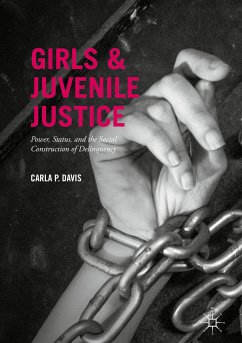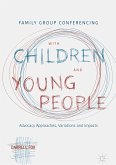'In Girls and Juvenile Justice, we hear directly from girls enmeshed in the U.S. juvenile justice system. Ways that the system criminalizes girls for simply challenging parental authority are clearly documented. Davis's important new book shows that the juvenile justice system is still discriminating against girls well into the 21st century.' -Meda Chesney-Lind, University of Hawaii at Manoa, Author of Girls, Delinquency, and Juvenile Justice
This book offers an ethnographic study of the lives of girls in the juvenile justice system. Based on rich, narrative accounts, the girls at the center of the study are viewed as confronted with the power of simultaneous race, class, and gender hierarchies. Through this framework, we see how the girls navigate this challenge by seeking status in their everyday lives: in their families; juvenile justice institutions; and neighborhood organizations, including gangs. Through analyzing the ways that the girls strive for higher social status, this book provokes debate about how policies and programs may be creatively rethought to incorporate this pursuit. Girls and Juvenile Justice offers a glimpse into the hearts, minds, and souls of adolescent girls. It will be of great interest for scholars of criminal justice, sociology, women's studies, and social-psychology.
Carla P. Davis is Associate Professor of Sociology at Beloit College, USA.
Dieser Download kann aus rechtlichen Gründen nur mit Rechnungsadresse in A, B, BG, CY, CZ, D, DK, EW, E, FIN, F, GR, HR, H, IRL, I, LT, L, LR, M, NL, PL, P, R, S, SLO, SK ausgeliefert werden.
"The power in this book comes from the periodic interviews that Davis conducts with the girls-she is able to highlight personal experiences while finding common factors. The excerpts from interview lend the book a level of reality-these are not just participants in a study, these are real people who are affected by the justice system." (Kelli Steinbuck, Journal of Youth and Adolescence, Vol. 47, 2018)









